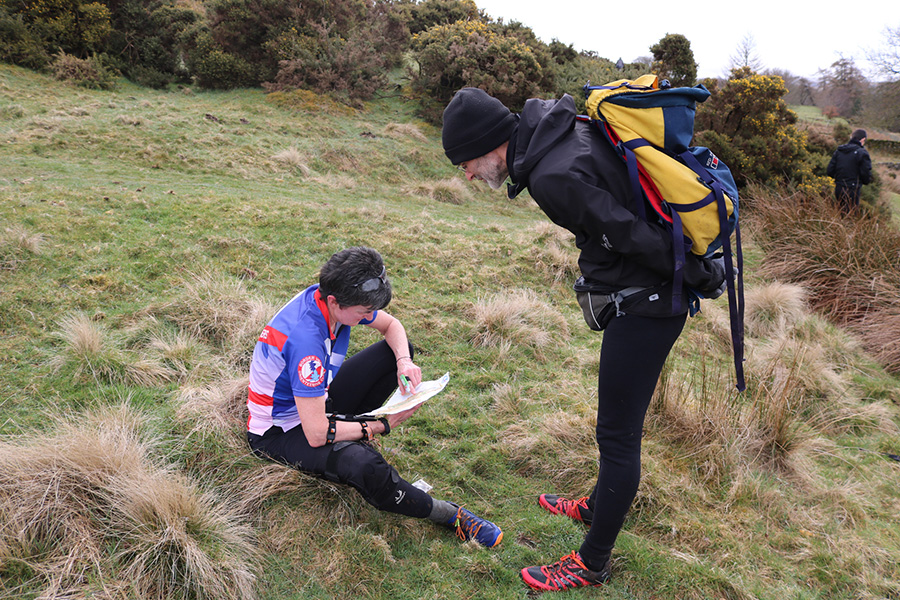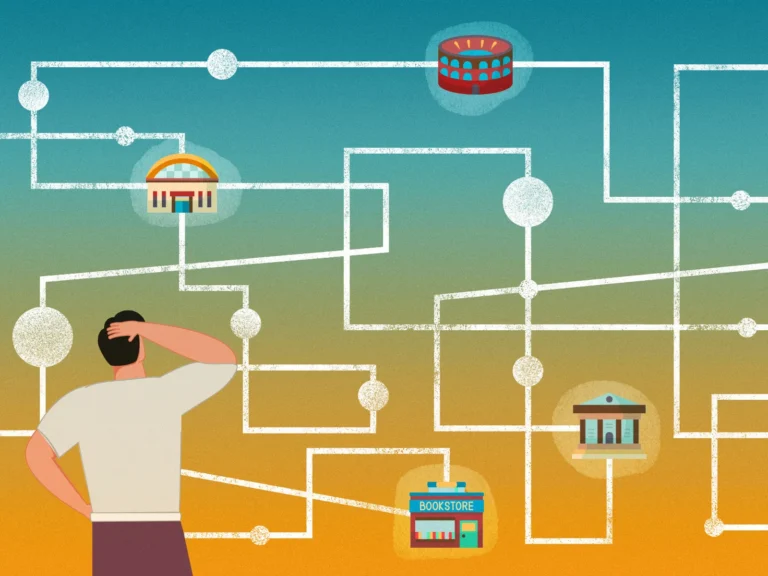Have you ever wondered why some people seem to have an innate sense of direction, while others struggle to find their way even in familiar surroundings? This question has intrigued researchers for years, and recent studies are shedding new light on the factors that contribute to our navigational abilities. Let’s explore the fascinating science behind why some people always get lost and what this reveals about the human brain’s capacity for spatial awareness.
The Nature vs. Nurture Debate in Navigation
For a long time, it was assumed that some people were simply born with a better sense of direction. However, recent research suggests that experience may play a more significant role than innate ability when it comes to navigation skills.
A 2020 study led by Margherita Malanchini at Queen Mary University of London compared the navigational performance of over 2,600 identical and non-identical twins in a virtual environment. The results showed that while there is a genetic component to navigational ability, it’s relatively modest. Instead, the biggest contributor to people’s performance was what geneticists call the “nonshared environment” – the unique experiences each person accumulates throughout their life.
This finding aligns with a large-scale experiment conducted by Hugo Spiers and his colleagues at University College London. Using a mobile game called Sea Hero Quest, which was played by nearly 4 million people worldwide, the researchers were able to measure wayfinding ability on an unprecedented scale. Their results revealed several cultural factors associated with navigational skills:
- People from Nordic countries tended to be slightly better navigators, possibly due to the popularity of orienteering in these regions.
- Rural residents generally outperformed city dwellers.
- Among urban populations, those from cities with more complex street networks (like older European cities) performed better than those from grid-based cities like Chicago.
These findings suggest that an individual’s life experiences and cultural background play a significant role in shaping their navigational abilities.
The Gender Gap: Culture, Not Biology
One of the most persistent findings in navigation research has been that men tend to perform better than women. However, recent studies indicate that this gender gap is more a question of culture and experience than innate ability.
In Nordic countries, where gender equality is high, there’s almost no difference in navigational performance between men and women. Conversely, in places where women face cultural restrictions on exploring their environment independently, such as some Middle Eastern countries, men significantly outperform women.
This cultural aspect is further supported by studies of the Tsimane, an Indigenous community in the Bolivian Amazon. Anthropologist Helen Elizabeth Davis and her colleagues found no gender difference in daily movement patterns or the ability to point to out-of-sight locations among the Tsimane. Even children in this community performed exceptionally well at navigation tasks, likely due to a culture that encourages children to explore their environment freely.
These findings suggest that the gender gap in navigation is primarily driven by differences in experience and opportunity rather than biological factors.

CREDIT: BORDER LINERS ORIENTEERING CLUB / FLICKR
The Building Blocks of Good Navigation
While experience plays a crucial role, researchers have identified several specific skills that contribute to good navigation:
- Distance estimation
- Map reading and memory (both physical and mental maps)
- Route learning based on landmarks
- Understanding the relative positions of different locations
However, much of the research has focused on two key subskills:
- Route-following using landmarks (e.g., turn left at the gas station, then go three blocks)
- “Survey knowledge” – the ability to build and consult a mental map of a place
Of these two, route-following is generally easier, and most people become proficient at it after repeating a route a few times. The real challenge lies in developing good survey knowledge, which allows for more flexible and creative navigation.
A study by Nora Newcombe and Steven Weisberg found that people generally fall into three categories when it comes to navigation:
- Those with good mental maps who can accurately point to landmarks on both familiar and unfamiliar routes
- Those with good route knowledge but poor mental maps, who struggle to integrate information between different routes
- Those who perform poorly on all navigation tasks
The ability to build and use mental maps appears to be a key factor in distinguishing good navigators from poor ones. People with strong survey knowledge can navigate more creatively, finding shortcuts and alternative routes when needed.
Can You Improve Your Navigation Skills?
For those who struggle with navigation, the good news is that these skills can likely be improved with practice. While more research is needed to determine the most effective methods, experts suggest several strategies:
- Pay attention to compass directions and prominent landmarks to help integrate movements into a mental map.
- Practice estimating directions by asking yourself which way is north multiple times a day.
- Engage in activities that involve exploration, such as hiking, biking, or playing video games with virtual environments.
- Reduce reliance on GPS, as overuse can lead to a decline in natural navigation abilities.
It’s worth noting that anxiety can hinder navigation skills, so building confidence through practice and exploration may also help improve performance.
Related Stories
The Impact of GPS on Navigation Skills
While GPS technology has made navigation easier in many ways, it may come at a cost to our natural abilities. A 2020 study by Louisa Dahmani and Véronique Bohbot found that heavy GPS users performed worse on navigation tasks that didn’t involve GPS. Moreover, a follow-up study showed that those who continued to rely heavily on GPS experienced greater declines in their non-GPS navigation skills over time.
This suggests that while GPS can be a useful tool, it’s important to balance its use with opportunities to exercise and maintain our natural navigation abilities.
The Power of Experience
The science of navigation reveals that our ability to find our way in the world is largely shaped by our experiences and cultural background. While some people may have a natural inclination towards better spatial awareness, the good news is that navigation skills can be developed and improved over time.
By understanding the factors that contribute to good navigation – such as building mental maps, paying attention to landmarks, and practicing without GPS – we can all work towards becoming more confident and capable navigators. Whether you’re exploring a new city or just trying to find your way around your neighborhood, remember that each journey is an opportunity to enhance your navigational abilities.
So the next time you feel lost, don’t despair. Instead, view it as a chance to exercise your brain’s navigational muscles and build the mental maps that will serve you well in future adventures. After all, getting lost might just be the first step towards never losing your way again.




Comments are closed.